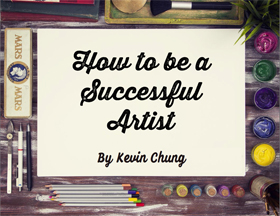“Never let the fear of striking out get in your way.” – Babe Ruth
Print available on Storenvy.
Babe Ruth was one of the most prolific hitters in baseball history. In 1923 he broke the record for most home runs in a season. He also had the second highest batting average that year.By the time he retired, he held the home run record at 714.
These statistics may be well known, but what isn’t as well known is, he also had the most strikeouts that year. Not only that, he also held the record for the most career strikeouts at 1,330.
[bctt tweet=”Great accomplishment does not come without great failure”]
Both of these records lasted many years before they were broken. The point is, Babe Ruth was not afraid to strike out. He realized that great accomplishment does not come without great failure.
This quote also comes in many variations. The words are different, but the message is always the same. Without risk, there is no reward.
“The biggest risk is not taking any risk. In a world that’s changing really quickly, the only strategy that is guaranteed to fail is not taking risks.” – Mark Zuckerberg
Mark Zuckerberg went to Harvard, one of the most well respected schools in the entire world. He could have played it safe and gotten a degree, found a good job, worked for 50 years, and retired.
Instead, he started working on a little project in his dorm room with a few classmates. They began sharing it on other campuses, and it became so successful that they dropped out of Harvard and brought it to Silicon Valley. That was the start of Facebook.
“Never was anything great achieved without danger.” – Niccolò Machiavelli
Niccolò Machiavelli is considered the “father of modern political theory.” He was a diplomat in the Florentine Republic for 14 years while the Medici family was out of power in Florence.
When the Medici family returned to power, he was suspected of conspiracy, sent to jail, tortured, and exiled. While exiled he wrote one of the seminal works of political theory: The Prince.
In The Prince, Machiavelli writes about monarchical rule and man’s ability to determine his own destiny. The book is known for showing politicians how to be ruthless, self-serving, and cunning. It even inspired the term Machiavellian.
[bctt tweet=”You should not be afraid to disturb the status quo”]
Machiavelli’s story shows that you should not be afraid to disturb the status quo. He could have sat by and let circumstances happen to him. Instead, he stuck by his ideals, even though he was punished for them, and is now immortalized through his work.
“The greatest risk to man is not that he aims too high and misses, but that he aims too low and hits.” – Michelangelo
Michelangelo is often cited as one of the most influential artists of all time. He has created some of the most recognizable pieces of art known to the world.
This only happened because he was willing to take risks with his art. Two great examples of this come in the form of his statue of David and his fresco painting on the ceiling of the Sistine Chapel.
Before Michelangelo created the statue of David, two prior sculptors attempted and abandoned it. A committee consulted several artists, including Leonardo da Vinci, about creating the statue. Yet Michelangelo, who was only 26 years old at the time, convinced the committee he deserved the commission.
This feat is so impressive because the statue stands at 17 ft tall and was made from a single giant piece of marble. It is now one of the most recognizable figures in the world.
The ceiling painting of the Sistine Chapel is an equally impressive feat. Although he was known as a sculptor, not a painter, Pope Julius II commissioned him adorn the ceiling with twelve large figures of the Apostles. Michelangelo negotiated a much grander scheme. He eventually created the painting with over 300 figures.
It took four years to complete the massive, complicated painting. An estimated six million people visit the chapel each year to catch a glimpse of the painting.
If Michelangelo did not take risks, these two complicated and spectacular pieces of art would have never been created.
—
[bctt tweet=”No one ever made something great without taking on great risk”]
These are just a few notable examples of what can be achieved when you are willing to take a risk. No one ever made something great without taking on great risk.
[bctt tweet=”Don’t let the fear of failure prevent you from achieving greatness”]
There is so much we can learn by studying those who came before us. Don’t let the fear of failure prevent you from achieving greatness. Don’t be fooled by the safety of the status quo. You have to be willing to strike out if you want to hit a home run.















Follow Me!